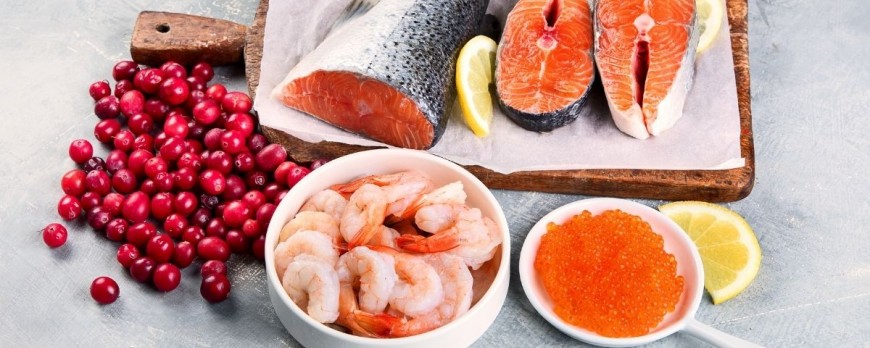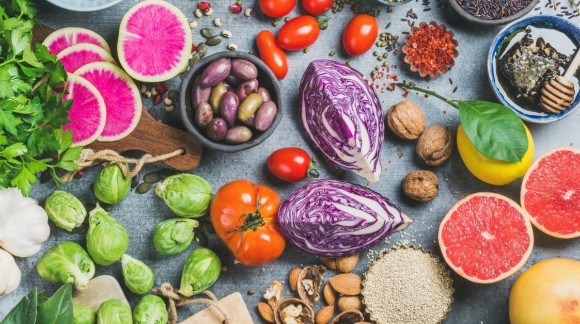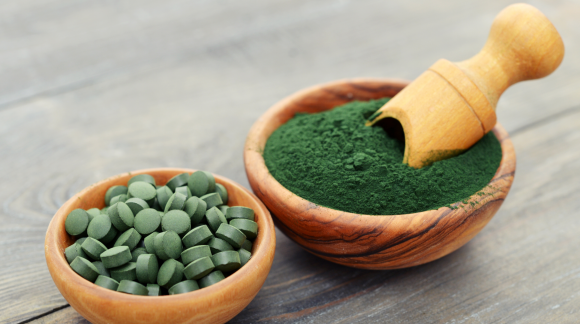Astaxanthin: The Marine Antioxidant That Outshines All Others
In today's world, where modern diets and urban lifestyles expose our cells to daily oxidative stress, natural antioxidants have become essential allies in preserving our health. Among these, one compound is garnering increasing attention: astaxanthin. Though still relatively unknown to the general public, this pigment molecule, derived from the marine world, belongs to the broader family of carotenoids, alongside beta-carotene and lutein.
Astaxanthin is distinguished by its characteristic reddish-orange hue. It is naturally produced by a microalga, Haematococcus pluvialis, in response to extreme environmental conditions. This pigment is then accumulated by marine organisms such as krill, plankton, crustaceans, shellfish, trout, and wild salmon. It's this very astaxanthin that imparts the distinctive pinkish coloration to these species. In other words, the vibrant color we observe in wild salmon flesh is not merely aesthetic; it serves as a biological marker of defense and resilience.
What Is an Antioxidant, and Why Are They Essential?
Antioxidants are substances capable of neutralizing free radicals, unstable molecules naturally produced during cellular metabolism. Their concentration can surge due to stress, pollution, smoking, an unbalanced diet, or lack of physical activity. When free radicals become too abundant, they attack our cells, our DNA, and our cellular membranes, leading to what is known as oxidative stress. This phenomenon is implicated in numerous chronic diseases, from skin aging and neurodegenerative disorders to diabetes and cardiovascular conditions.
To counter this, our bodies rely on a defense system: antioxidants. While some are produced internally, like glutathione, most must come from our diet. This is where astaxanthin plays a key role. Not only does it integrate into our antioxidant defense, but it does so with significantly greater efficiency than more common antioxidants. Its liposoluble nature allows it to be embedded in cellular membranes, and its molecular stability enables it to cross key biological barriers such as the blood-brain barrier, making it a rare and powerful asset.
Why Is Astaxanthin Considered the Most Powerful Natural Antioxidant?
From a scientific perspective, astaxanthin is a remarkable molecule. Its structure enables it to operate across the entirety of a cell—both outside and within. Unlike water-soluble vitamin C or fat-soluble vitamin E, astaxanthin combines both solubility properties, ensuring comprehensive cellular protection. It can neutralize several types of free radicals, stabilize cell membranes, inhibit inflammatory cascades, and remain active in the body for extended periods.
Research shows that its antioxidant power is up to 6,000 times stronger than vitamin C, 800 times stronger than coenzyme Q10, and 75 times stronger than alpha-lipoic acid. These aren't just theoretical claims—they are backed by clinical observations showing improved skin health, enhanced muscle recovery, better vision, brain protection, and reduced chronic inflammation.
How Does Astaxanthin Compare to Other Antioxidants?
There is a wide range of natural antioxidants with various profiles. These include polyphenols found in berries, green tea, and cocoa; flavonoids known for their vascular benefits; resveratrol from grapes with reputed longevity effects; and essential antioxidant vitamins like C and E. Each of these has specific benefits. However, few combine as many properties as astaxanthin.
Whereas vitamin C acts mainly in aqueous environments and vitamin E in fatty tissues, astaxanthin works across all environments. Where resveratrol is heat-sensitive and unstable, astaxanthin remains potent. And where many polyphenols suffer from low bioavailability, astaxanthin is highly absorbable—provided it comes from natural algal sources and is paired with a suitable lipid carrier.
Frequently Asked Questions (FAQ)
What are the main health benefits of astaxanthin?
Astaxanthin supports skin elasticity and hydration, enhances muscle recovery, improves endurance, boosts cognitive function, and protects eye health. It also contributes to immune regulation and helps combat signs of aging through powerful oxidative stress reduction.
Is astaxanthin better than resveratrol?
Both offer unique advantages. Resveratrol is a polyphenol with cardiovascular and longevity benefits but is less stable and bioavailable. Astaxanthin, a marine carotenoid, is more potent in antioxidant capacity, stable under heat, and active in both cellular and brain tissues.
Can astaxanthin improve skin health?
Yes, clinical studies have demonstrated that regular intake of astaxanthin enhances skin hydration, elasticity, and reduces wrinkles. It protects against UV-induced damage and oxidative stress, making it a strong natural ally for anti-aging strategies.
Is astaxanthin safe for long-term use?
Astaxanthin from natural sources such as microalgae is considered safe when consumed within recommended dosages. It is well-tolerated, with no serious side effects reported. Some users may notice subtle pigmentation changes or orange-tinted stools, which are harmless.
Which foods are rich in astaxanthin?
Natural sources include wild salmon, krill, shrimp, lobster, and microalgae like Haematococcus pluvialis. However, to match effective clinical dosages, high-quality supplements are recommended for consistent benefits.
Conclusion: A Natural Ally for Longevity and Vitality
Astaxanthin is far more than a simple supplement. It represents the powerful synergy between marine biology and modern health science. With its broad-spectrum efficacy, ability to cross biological barriers, and support for key functions such as inflammation control, skin protection, muscle recovery, and cognitive health, it stands out as one of the most comprehensive natural antioxidants available today.
Incorporating astaxanthin into your wellness routine, alongside a colorful, nutrient-rich diet and a balanced lifestyle, may offer tangible and lasting benefits. The goal is not to chase miracle cures, but to make informed, consistent choices that support the body's natural resilience. In this sense, astaxanthin reminds us that nature holds powerful tools—when we take the time to understand and use them wisely.
To explore our curated selection of natural astaxanthin supplements, visit our dedicated product page.
-
Dietary Supplementation with Astaxanthin-Rich Algal Meal Improves Strength Endurance – A Double Blind Placebo Controlled Study on Male Students. Curt L. Malmstena and Åke Lignell, Carotenoid Science, Vol.13, 2008, ISSN 1880-5671.
(No official online link available – published in print only) -
Astaxanthin in Exercise Metabolism, Performance and Recovery: A Review. Daniel R. Brown, Lewis A. Gough, Sanjoy K. Deb, S. Andy Sparks, and Lars R. McNaughton. Front Nutr. 2017; 4: 76.
Read full study -
Marine Carotenoids against Oxidative Stress: Effects on Human Health. Maria Alessandra Gammone, Graziano Riccioni, and Nicolantonio D’Orazio, Mar Drugs. 2015 Oct; 13(10): 6226–6246.
Read full study -
Protective effects of astaxanthin on skin deterioration Kumi Tominaga, Nobuko Hongo, Mayuko Fujishita, Yu Takahashi and Yuki Adachi. J Clin Biochem Nutr. 2017 Jul; 61(1): 33–39.
Read full study






